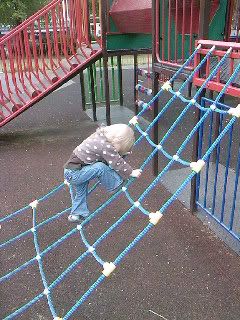floppit wrote:
You said that you didn't see anything in your experience that relates to magic but rather our incomplete understanding of science (I hope I understood that correctly?). Does that mean that you have experienced thing inexplicable within the current physical science knowledge base or that you have not seen anything inexplicable by science as we know it? Also, when you find what you experience fits with what you already believe do you feel aware of any confirmation bias?
In reverse order, yes, I am aware of the potential of confirmation bias. That is why my experience is in the realm of faith, and I do not claim certainty or knowledge. Experience itself is explained by brain chemistry, but what excites that experience is something else altogether, IMO. External stimuli create brain experiences. My experience of God appears to me to come from external stimuli, just as my happiness in seeing my grandchildren. In other words, I relate it to an objective reality, not simply something that is happening in my head.
floppit wrote:
I totally get what you mean about the lack of empirical data in 33 C.E but the notion on the table isn't that god/jesus existed then, it's that god/Jesus exists then AND NOW, in 2010 we do have the resources to record and measure so as belief is not based on the past but on the past and present surely the evidence required should reflect that?
I think it is an assumption on your part to state that we should have empirical evidence of the existence of God/Jesus now. This is an epistemological issue. If God is not subject to current scientific experimentation/observation, then there is no way for science to test his existence. If he exists primarily outside of this dimension, then scientific tools will be of no value in determining his existence. Christianity posits another method of acquiring information, which is through revelation. The response to divine disclosure is not knowledge (which is evidence-based), but faith (which is revelation-based). If you
a priori exclude the possibility of revelation as a method of inquiring information, then that level of inquiry is closed off to you.
floppit wrote:
And yet, not so oddly from my POV but surely oddly from yours, the evidence now still remains anecdotal and (on the whole) from believers, more over those anecdotes are influenced by the culture each person grew up in, despite many groups believing THEIR god is universal each will only see evidence for their own. Surely in a court of law these details would be noted, surely an attorney would pick up on them and question the validity of the anecdotes?
Correct, but this is the nature of revelation, which is personal. It's not much different than having multiple witnesses to an intersection collision or a crime. The accounts will vary, but there is a version that is closer to objective reality. By comparing and contrasting the various stories, the jury attempts to come closer to the truth. All revelation is subject to some subjectivity by it's various nature. But the believer accepts that this is how God has chosen to reveal himself. From Christianity's standpoint, there was a divine disclosure in Jesus. However, as we see, even that comes down to personal experience.
Of course, no one ever gets a "revelation" that God does
not exist. From whence would such a revelation come? Revelations deal with the existence of God, but are interpreted differently.

